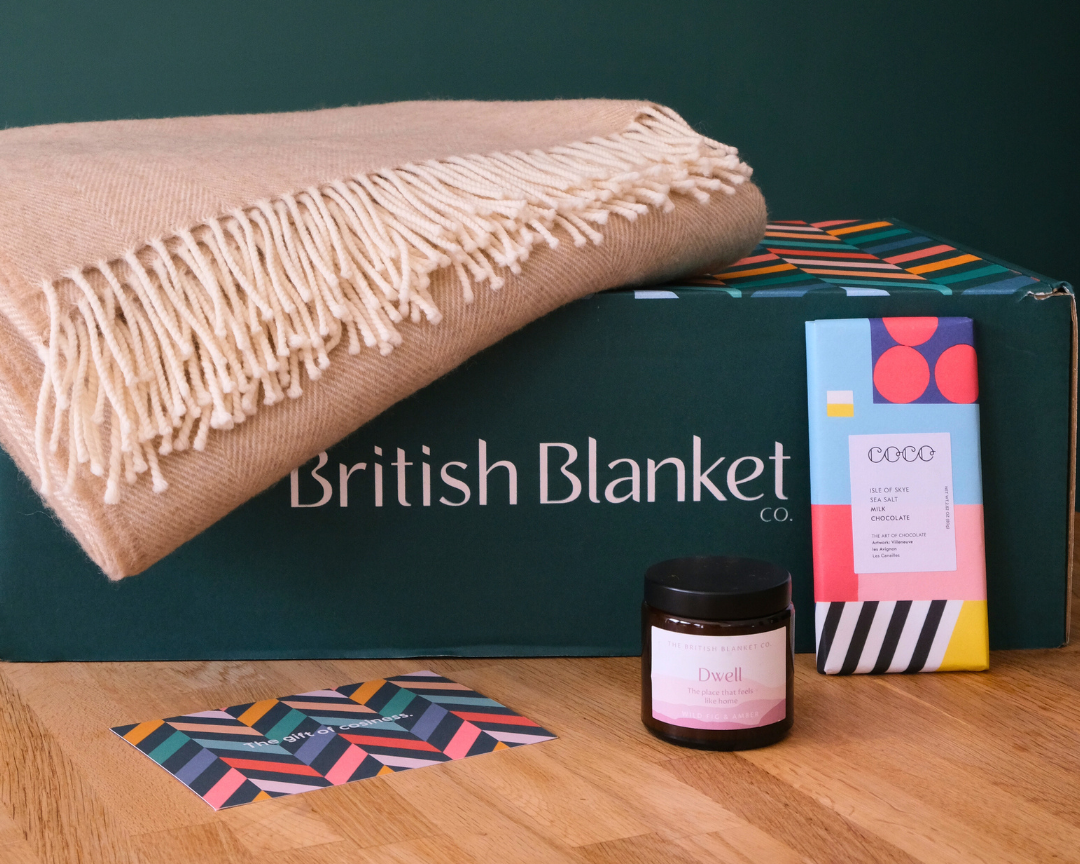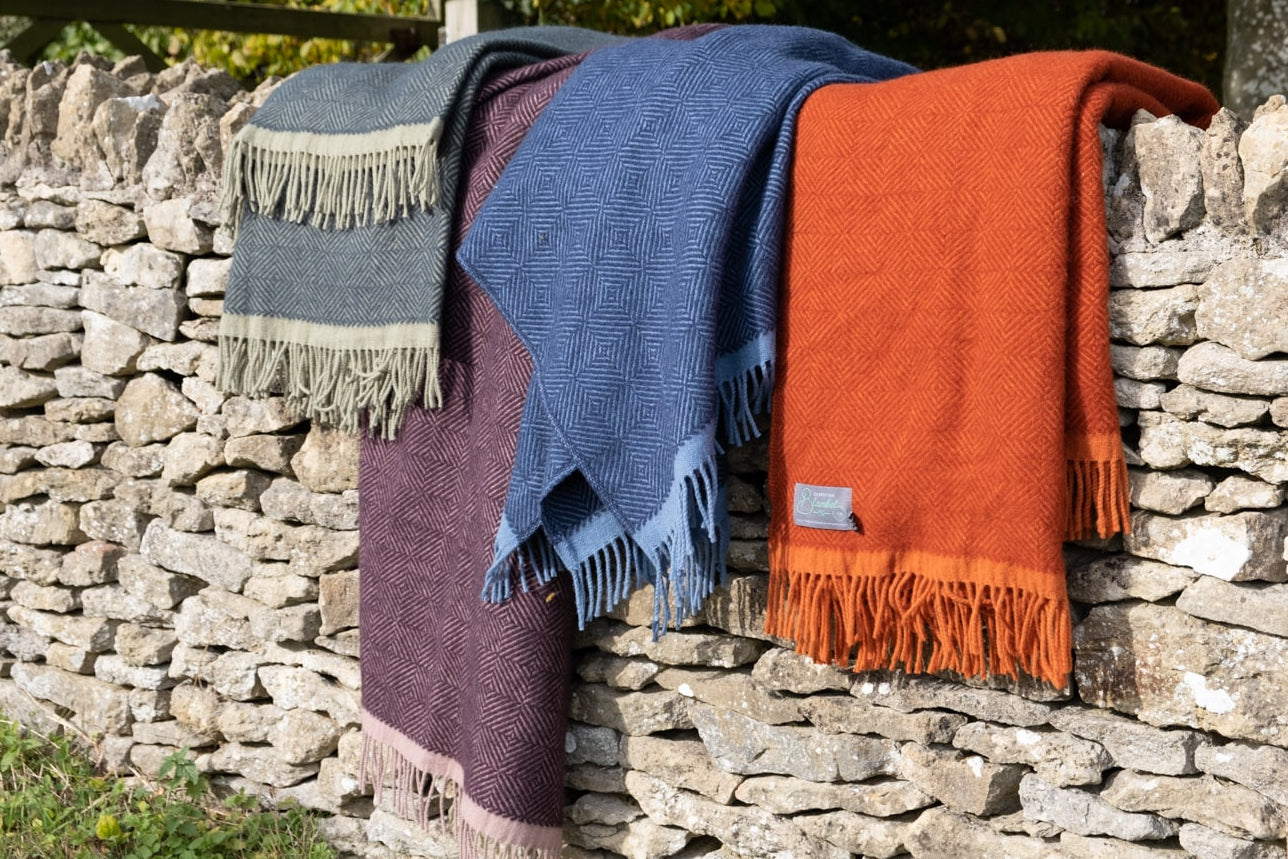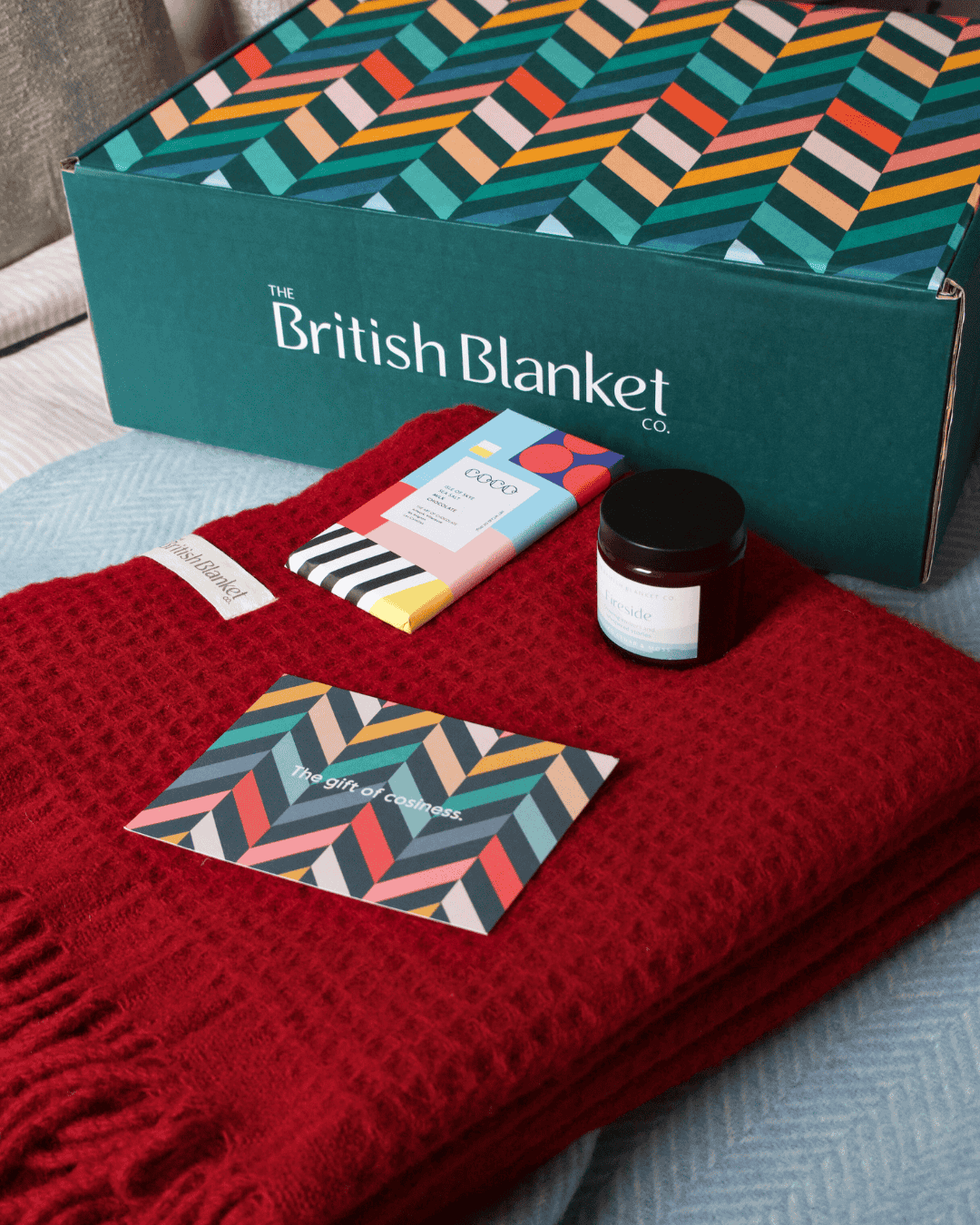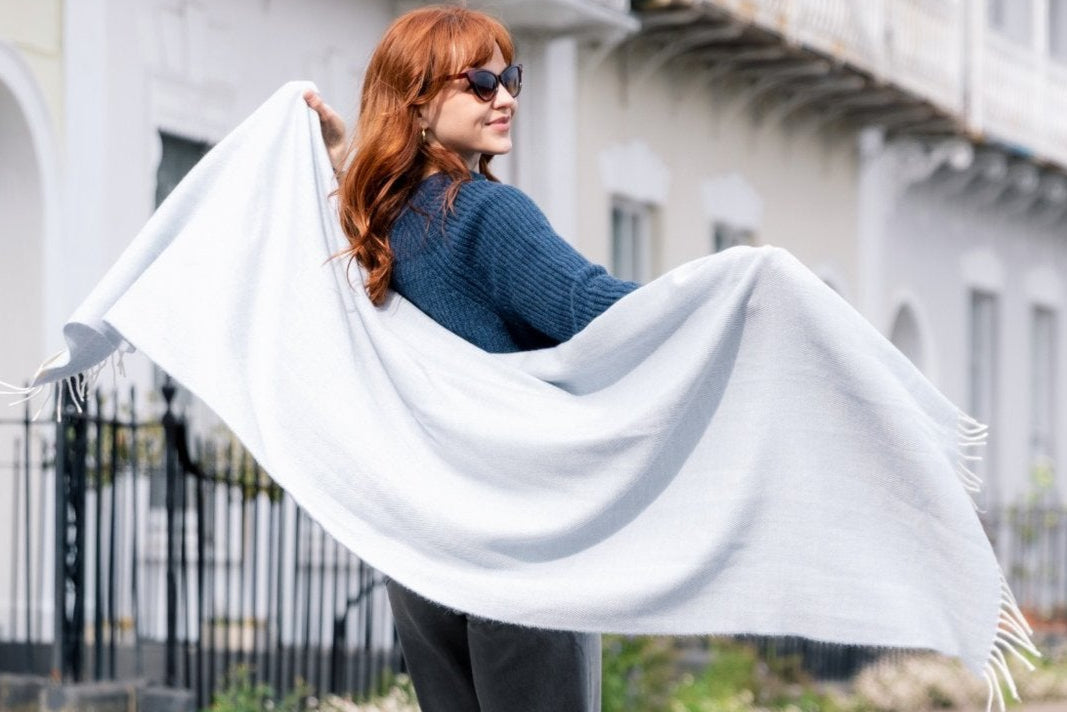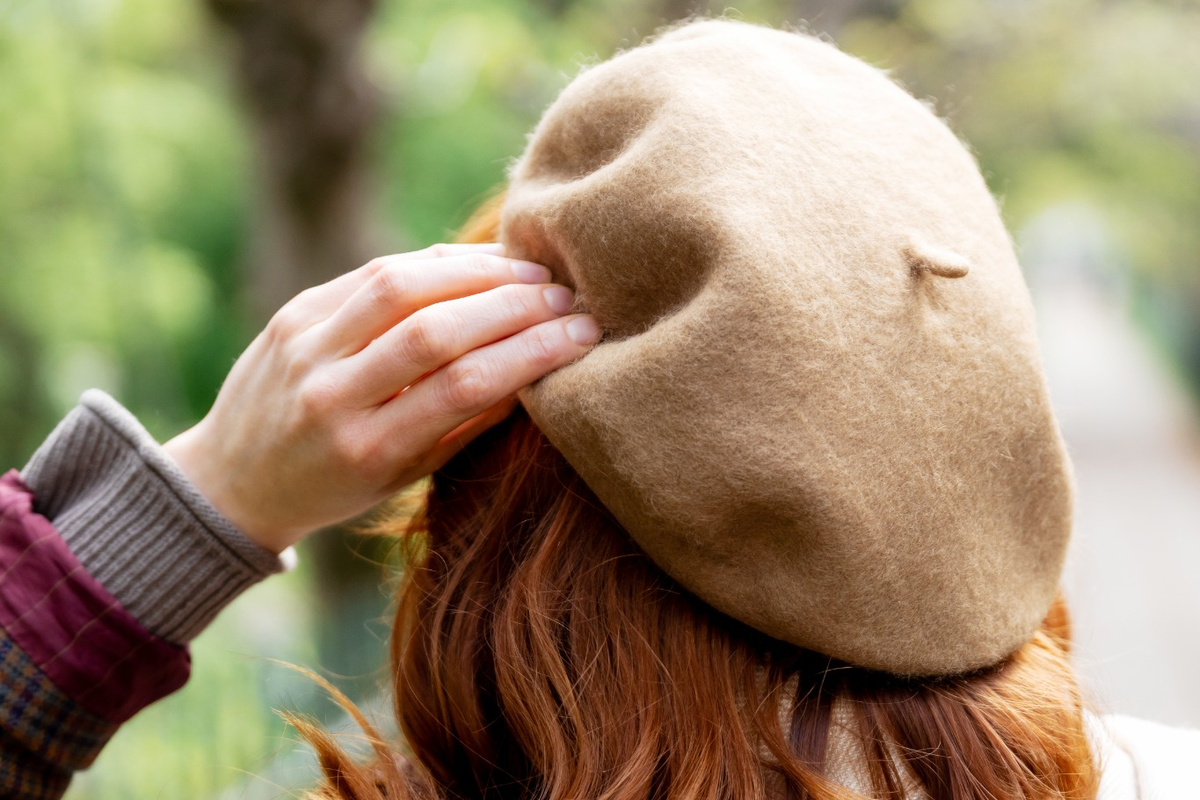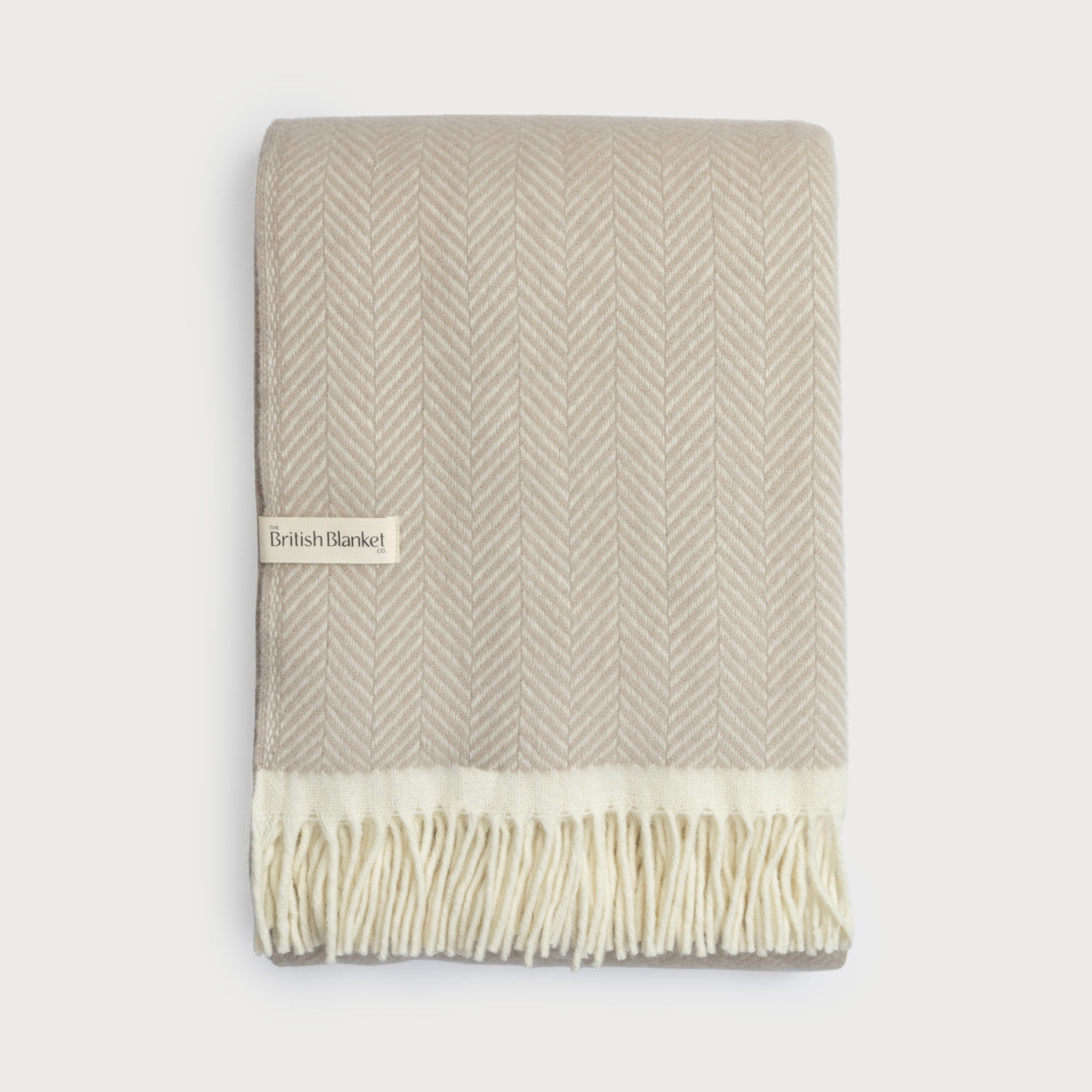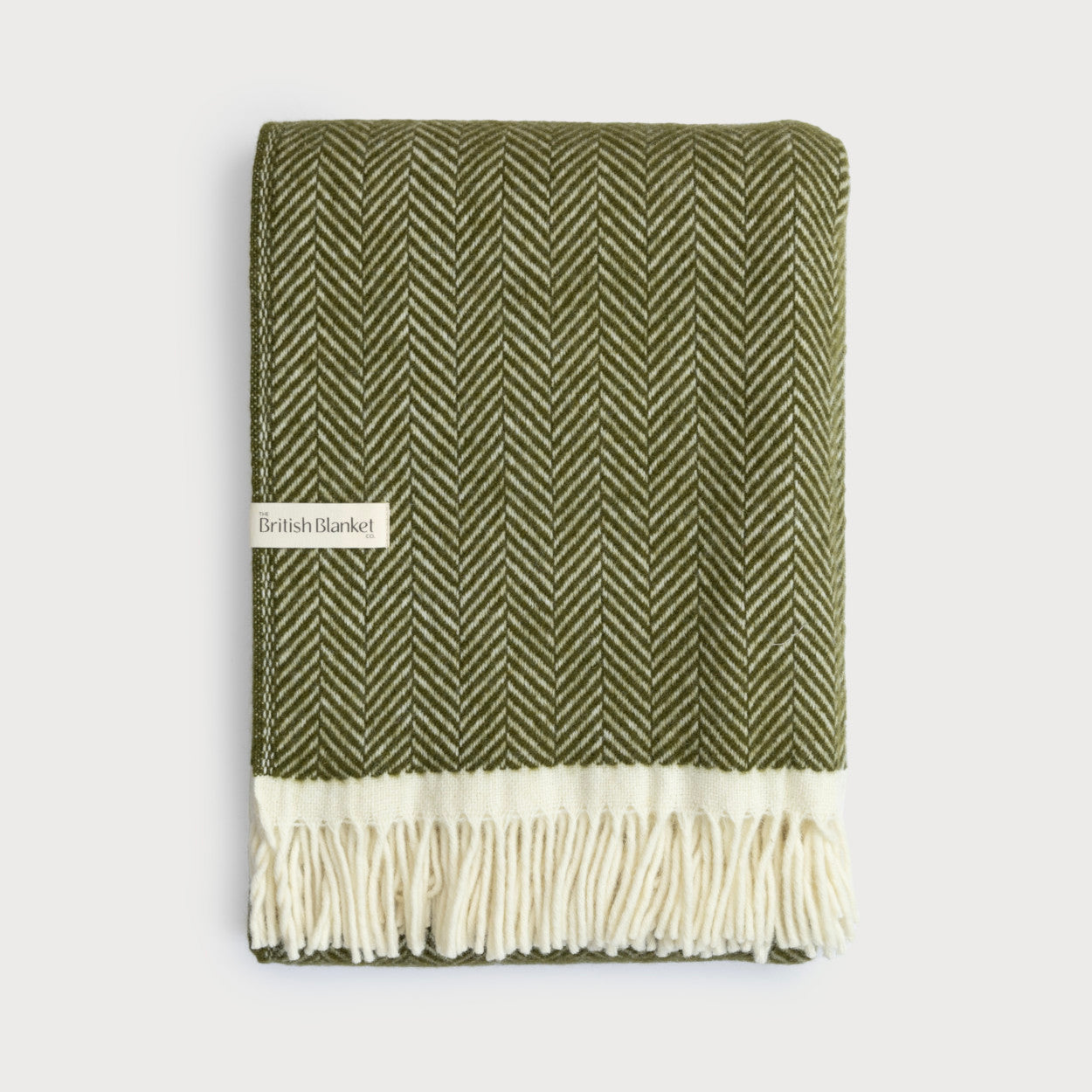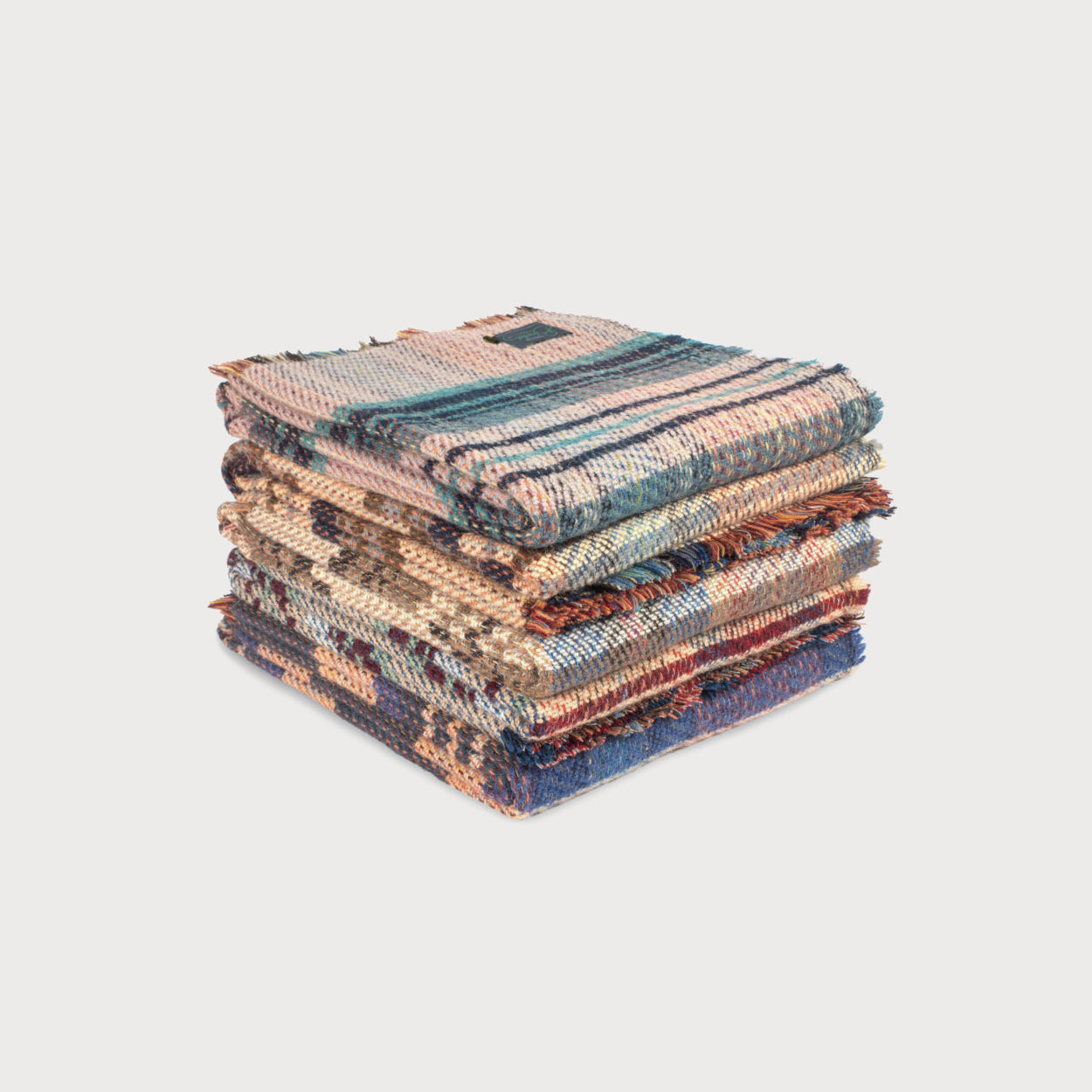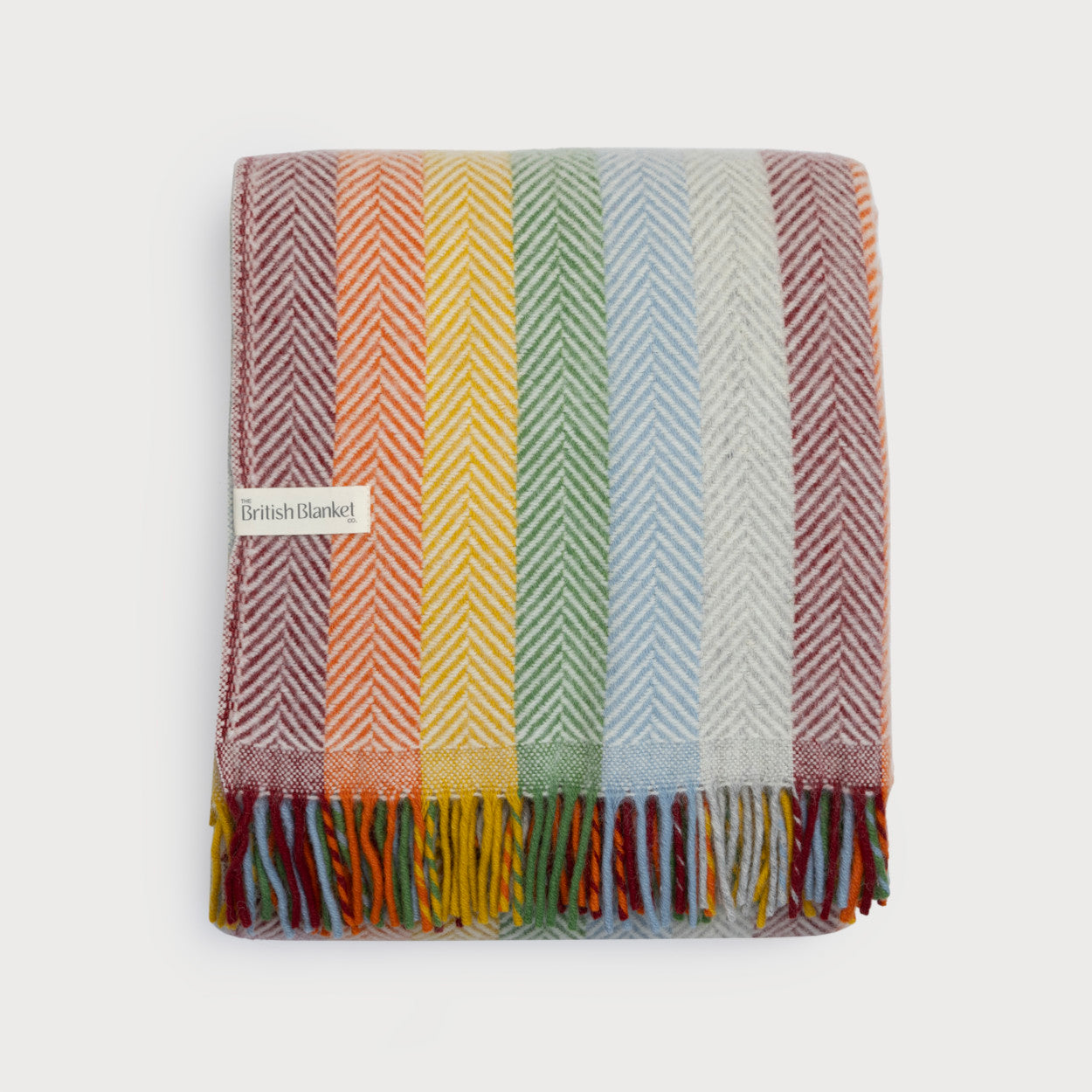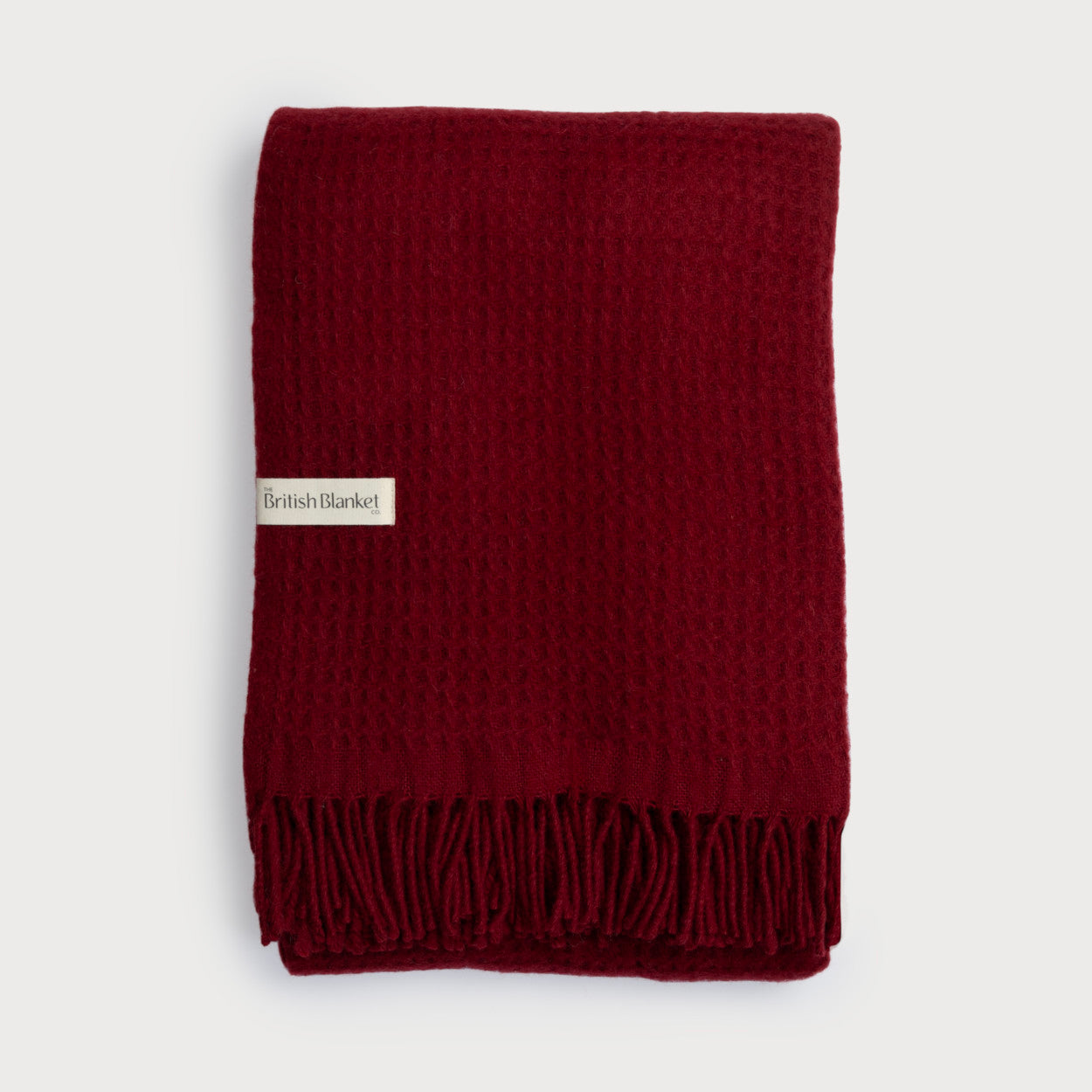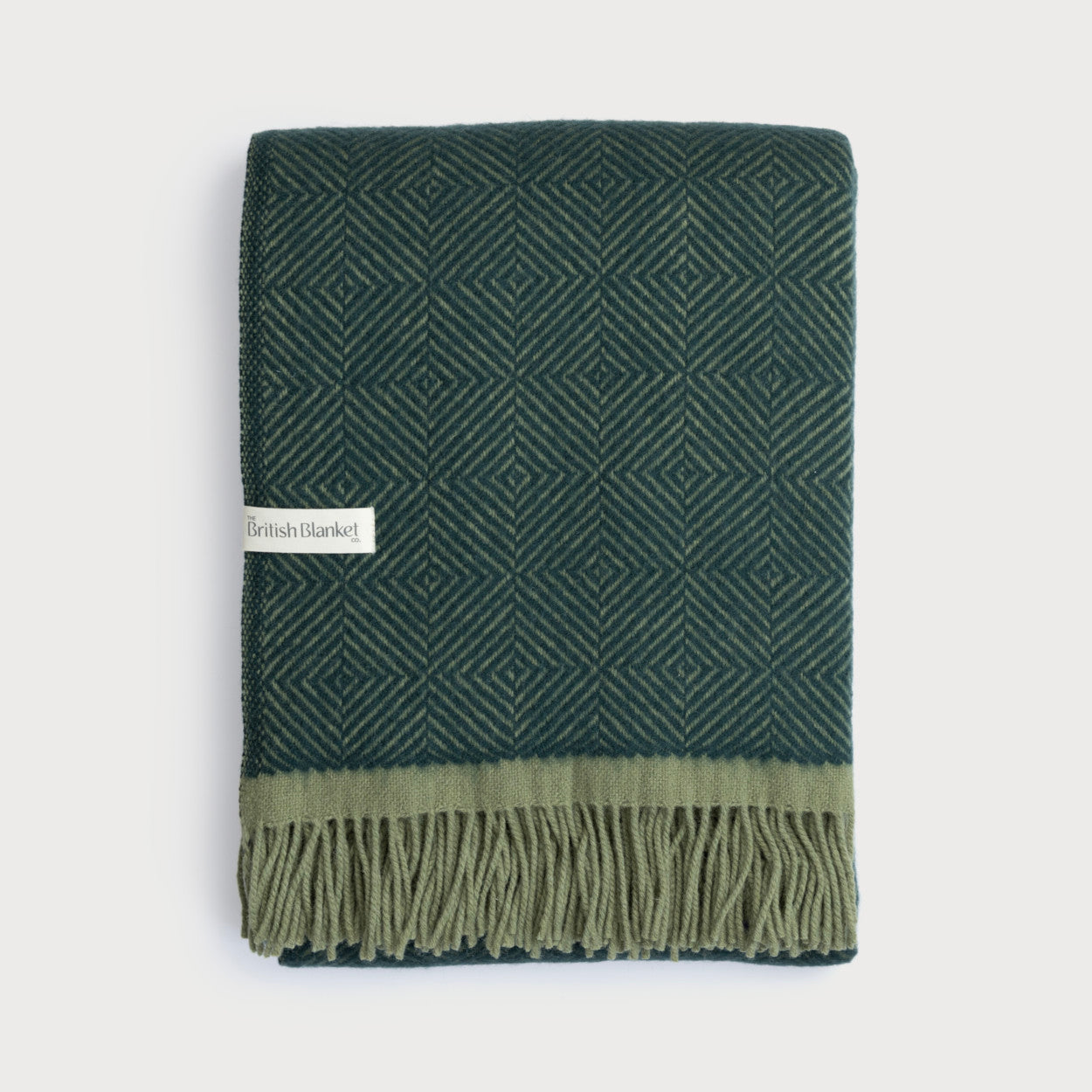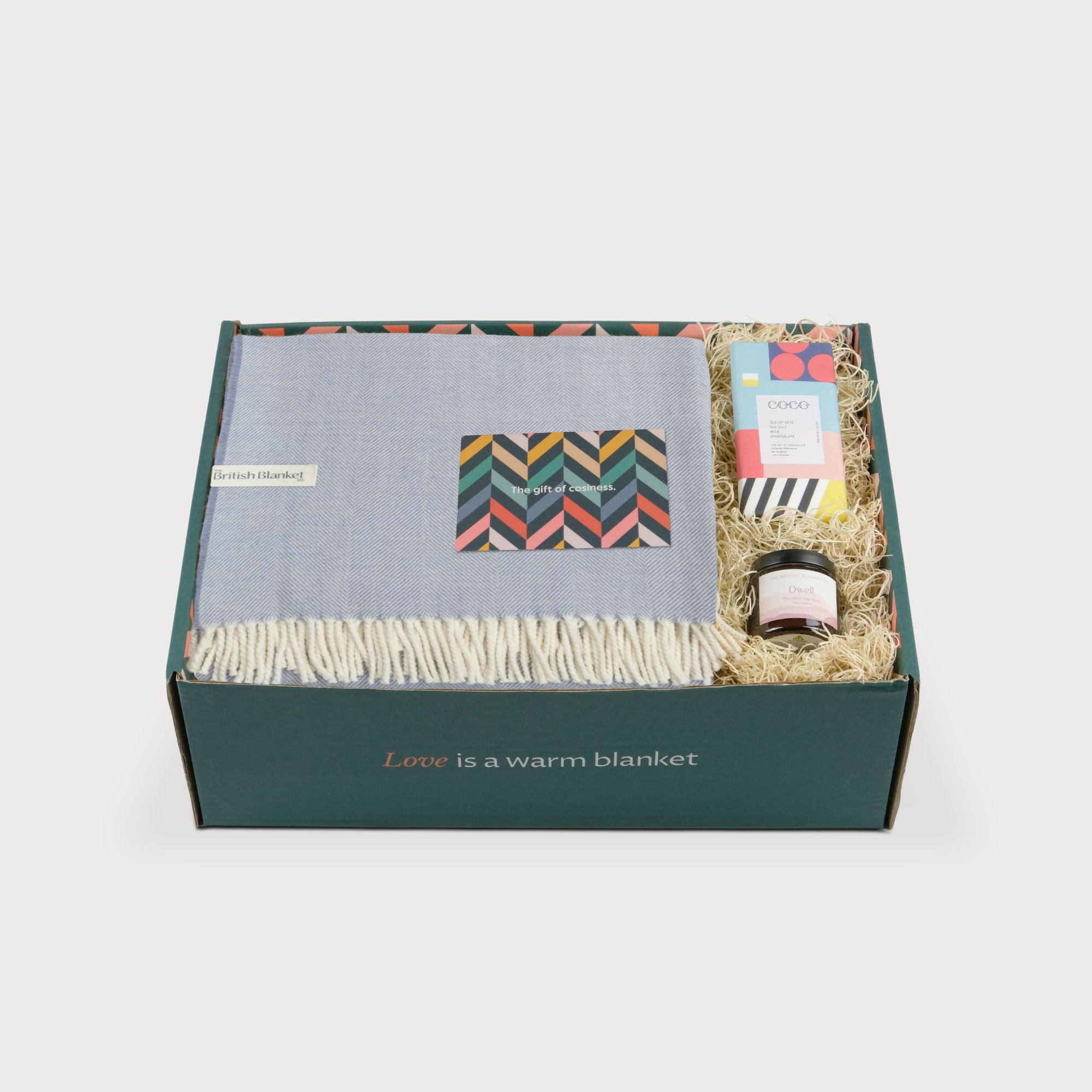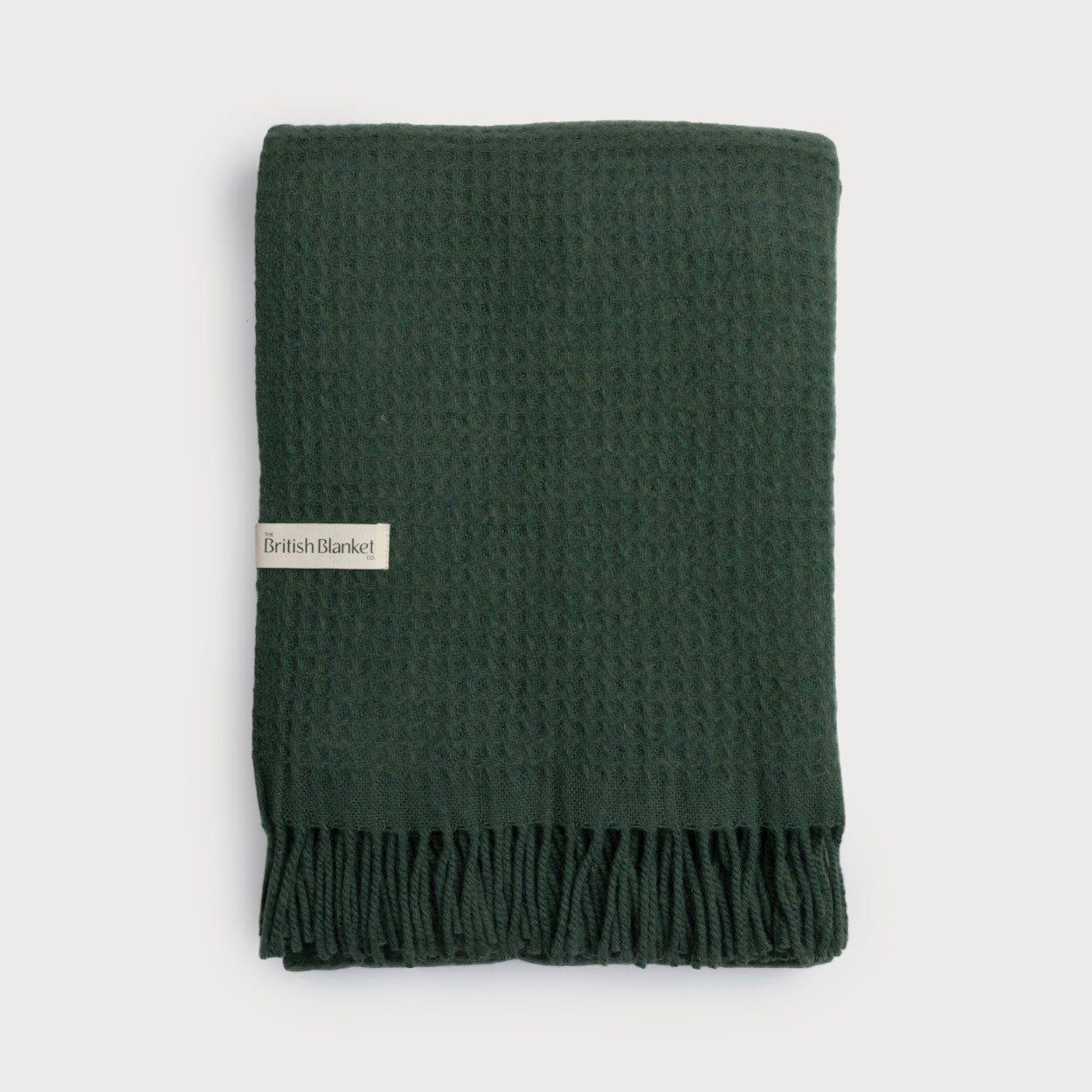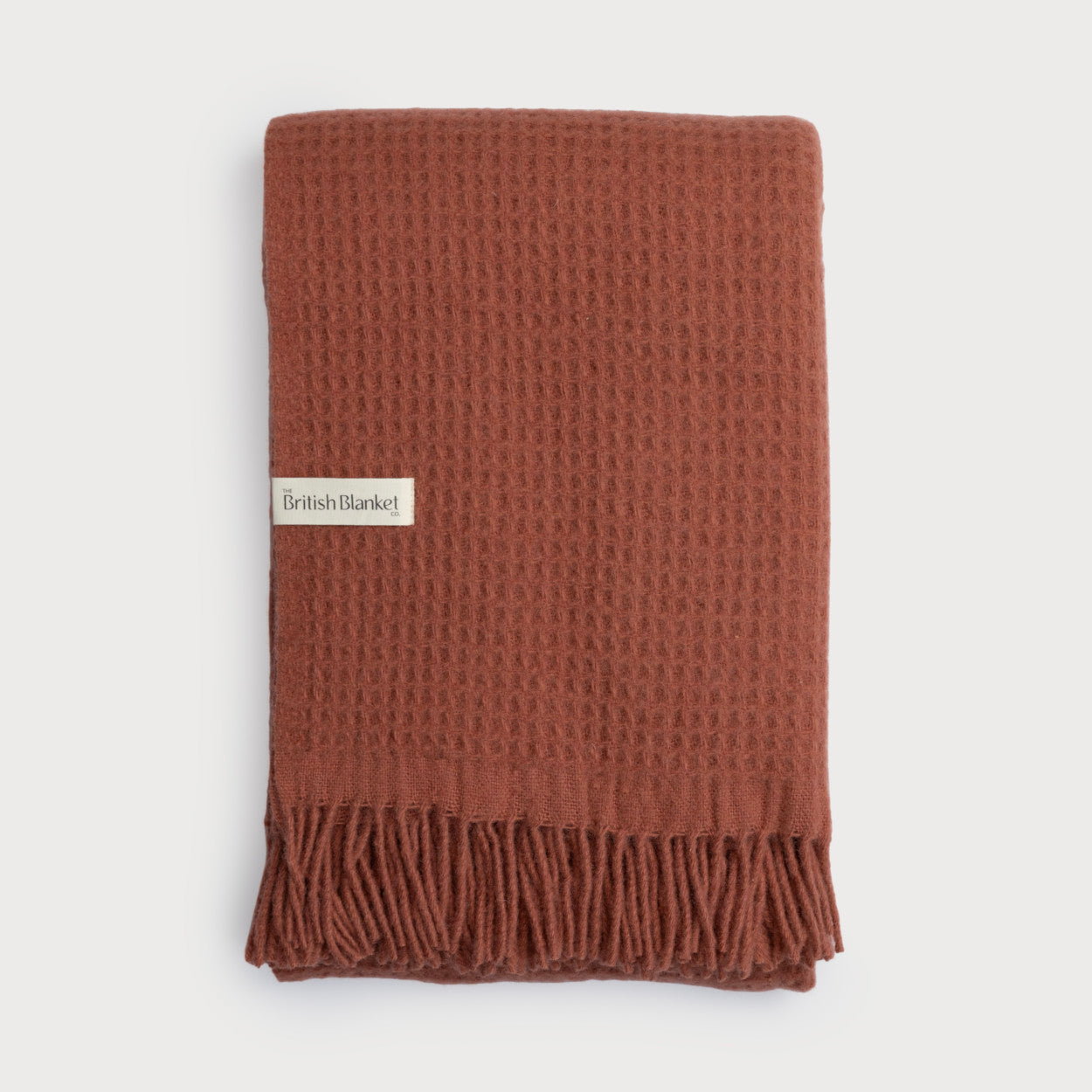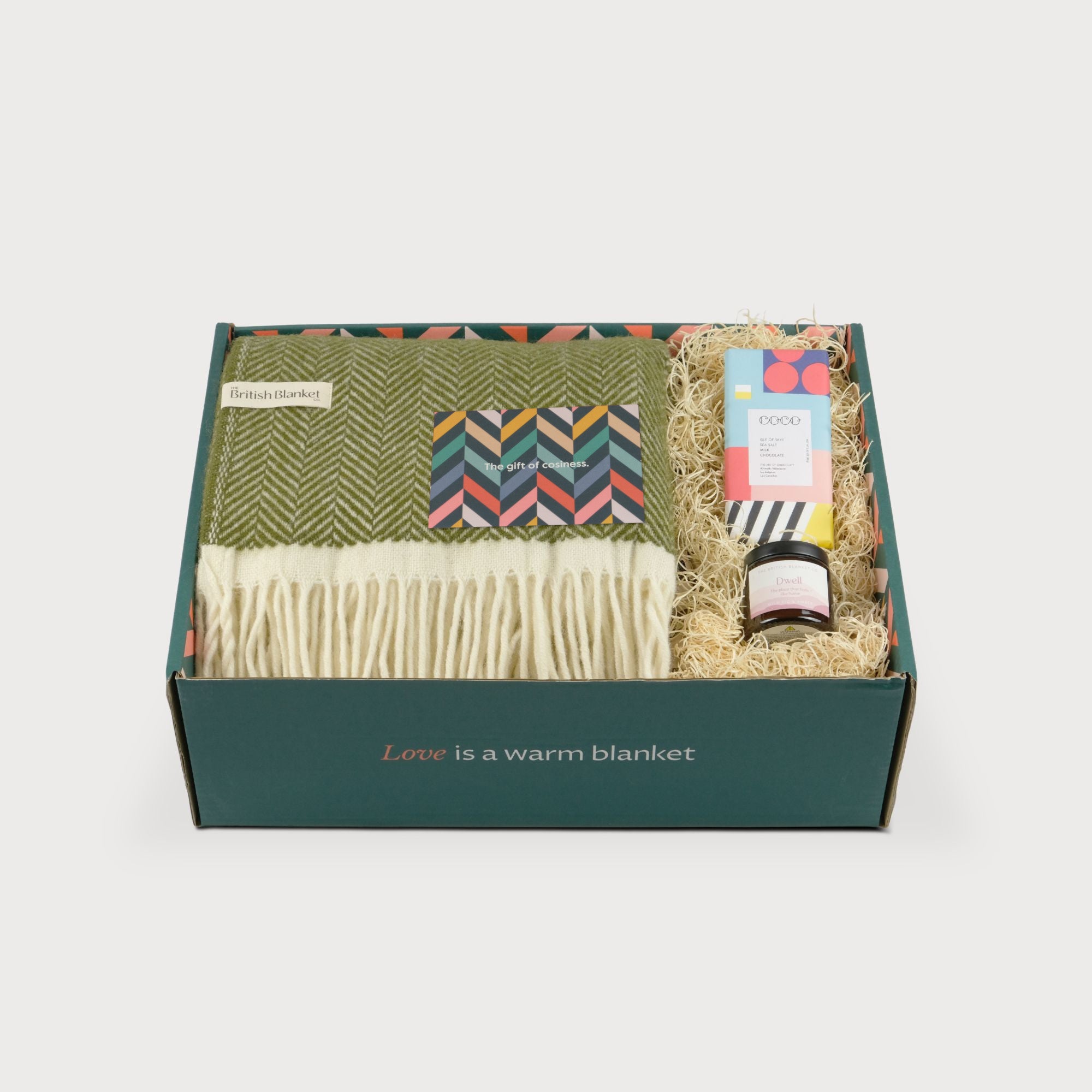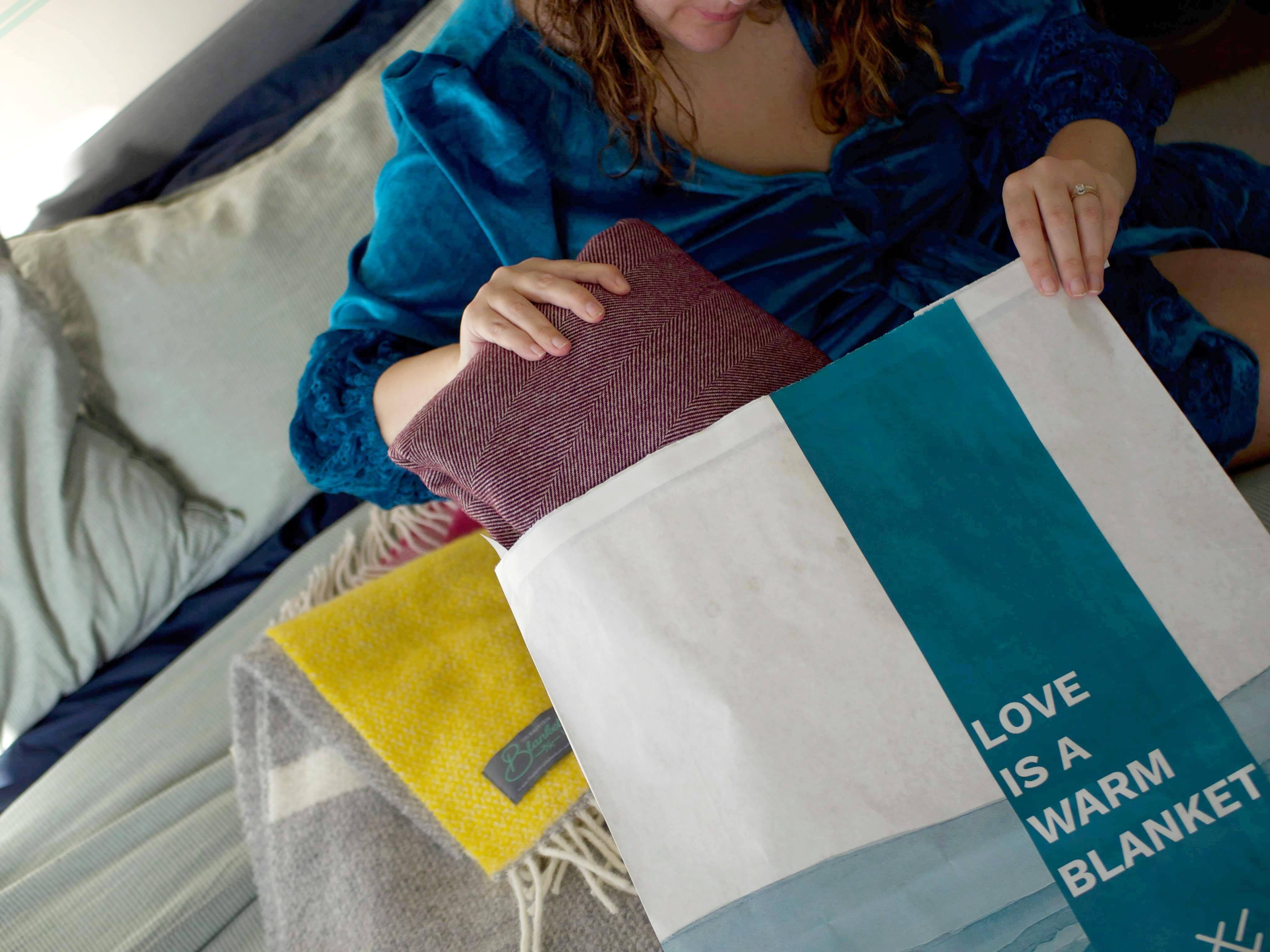22nd April is Earth Day, an annual reminder of the small lifestyle changes we can all make to collectively help protect the environment. We thought this would be the perfect day to delve deeper into some environmental advantages of wool.
Here at The British Blanket Company, we care deeply about the environment and are always looking for ways to lessen our impact on the natural world. From the eco-friendly wool we use make our blankets, to our re-useable paper mailing bags, sustainability is really important to us. With every strand woven right here in the British Isles, you're buying local and helping keep the tradition of weaving alive with every purchase.

So, Is Wool Environmentally Friendly?
There’s a lot of conversation surrounding wool when it comes to sustainability, so we thought we’d share why it is the perfect eco-friendly choice for your next blanket.
Wool is a natural and renewable materialUnlike synthetic fibres that are made from petrochemicals and plastics, wool is completely natural.
Wool fibres are biodegradable and, the end of their life, they release valuable nutrients back into the earth acting as a fertiliser for plants and crops. This is in stark contrast to synthetic fibres which can remain in the soil for hundreds of years with no positive benefit.
We know you won't be throwing your British Blanket Company throw away any time soon but, if you did, rest assured the wool would completely biodegrade in as little as 3-4 months.
Wool cloth uses less water and energy to make than syntheticsOn average, wool fabric uses 18% less energy than polyester. As wool makes such a low impact on the environment during its creation, it’s one of the most environmentally friendly fabrics around.
Wool comes from sheep that roam freelyAnimal welfare is a big concern when it comes to sustainability, which is why we work with trusted mills and suppliers that share our values. The wool used for each and every one of our blankets comes from sheep that roam freely. Our merino is also mulesing free.

Wool products need to be washed much less than synthetic fibres due to its natural odour resisting properties.
As wool lasts longer, they can also be donated and recycled when its no longer needed. Wool fibres from unwanted clothing can be respun into new cloth, giving wool a second life.
A longer life and fewer washes mean that not only do your wool blankets and clothes last longer, but the carbon footprint created by maintaining them is lower than with other materials.

How Our Packaging is Eco-Friendly
As an eco-friendly business our commitment to the environment doesn’t end with the blankets we produce. When it comes to delivering your order, we use eco-friendly recycled paper mailing bags and recycled cardboard boxes. This means we keep unwanted plastic to an absolute minimum, and you can reuse the bag or box to send your own parcels in the future.

It's Eco-Friendly to Buy British-Made
By making all our blankets in Britain, our products have a much lower carbon footprint than blankets woven overseas. All of our blankets are woven at mills located right here in the British Isles, keeping this traditional industry alive, supporting local jobs, and keeping money in the local economy. Buying local is an eco-friendly choice and a small way you can make a big difference. Thank you!

Head over to The British Blanket Company online shop now to browse our full collection of beautiful wool blankets made in the UK and Ireland.
